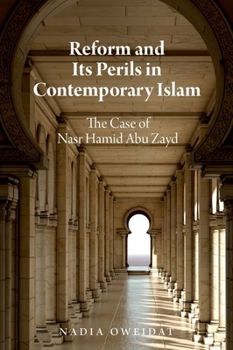Reform and Its Perils in Contemporary Islam: The Case of Nasr Hamid Abu Zayd
The Egyptian scholar Nasr Hamid Abu Zayd (1943-2010) was one of the 20th century's foremost Islamic modernists. A professor of Islamic thought in the Department of Arabic Language and Literature at Cairo University, as well as a practising Muslim, Abu Zayd became well known in Egypt and beyond when the Egyptian Court of Appeals declared him an apostate in 1995, a judgment that, in mainstream interpretations of Islamic law, can carry the death penalty. To protect his life and that of his wife, Abu Zayd fled to the Netherlands, a victim of "intellectual terrorism" carried out by the forces of religious extremism. Reform and Its Perils in Contemporary Islam offers an intellectual history and critical analysis of Abu Zayd's work. Abu Zayd believed there could be a positive relationship between modernity and Islam. He sought to reinterpret central aspects of the Islamic tradition to render them more conducive to modern conceptions of religion, society, and politics. Nadia Oweidat situates this prominent Muslim scholar both within his modernist intellectual milieu and in opposition to his numerous critics, elucidating and providing summary translations of Arabic texts that, until now, have remained largely unknown to Western audiences. Abu Zayd's fate, Oweidat argues, illustrates the hostility faced by modernist intellectuals who attempt to subject the Islamic tradition to academic scrutiny.
Format:Hardcover
Language:English
ISBN:0197744095
ISBN13:9780197744093
Release Date:June 2024
Publisher:Oxford University Press
Length:272 Pages
Weight:1.20 lbs.
Dimensions:1.0" x 6.0" x 8.9"
Customer Reviews
0 rating





